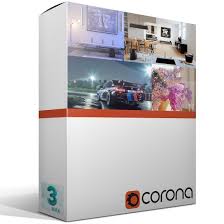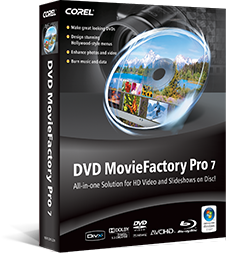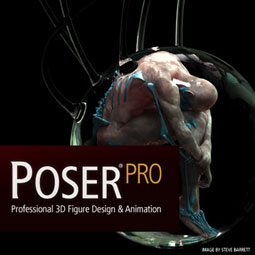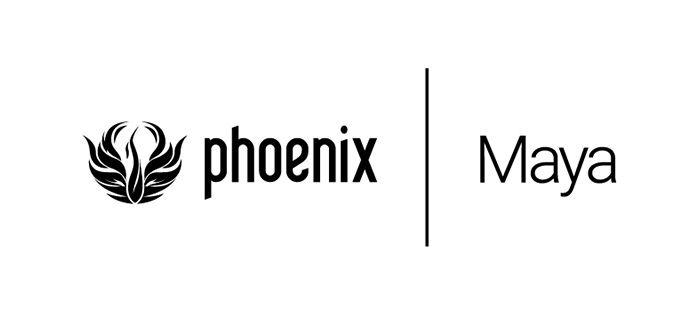Corona Renderer Features
Corona Renderer delivers high quality, physically-based shading in production rendering.
All its features are tightly integrated into Autodesk 3ds Max.
Render Engine
- Biased and Unbiased solution
- Path Tracing: unbiased solution
- UHD cache: faster biased cached solution for interiors
- Denoising
- Reduces the number of passes needed to get a noise–free image, with render time reductions of 50 to 70%
- NVIDIA AI GPU–based denoising can be used for final renders at the user’s discretion (requires a compatible NVIDIA GPU)
- Intel AI denoising can be used for final renders. CPU–only, and works with any CPU (not just Intel)
- Interactive amount adjustment
- Checkbox to enable/disable the result in the VFB
- Fast Caustics Solver
- Easy to use, fast to render
- Includes caustics from reflection, refraction, and dispersion (splitting light into separate colors)
- Enable or disable for specific light sources
- Works with LightMix
- Separate render element available for compositing caustics in post processing for even greater control
- Works correctly with Motion Blur
- Adaptive Image Sampling
- Balances out the rendering calculations over the image to focus more processing power on tricky areas
- High Quality Image filtering, gives a more natural and “less CGI” look to noise, making it less noticeable to the eye
- Progressive rendering
- Max Sample Intensity (MSI): automatically removes fireflies –
accuracy/render speed tradeoff
- Proudly CPU based
Interactive LightMix
- Adjust color and intensity of lights, during and after rendering
- Single–click set up (by instances, groups or individual lights, with memory requirements reported)
- Supports multiple suns and multiple environments for different times of day from one render
- Manual set up if required
- Controlled from the VFB
- Results can be pushed to the scene
- Can be used for anything from subtle adjustments, to turning day into night, without re–rendering
- Each light select pass can be denoised independently (this can be enabled during automatic setup)
- LightMix result can be saved to a CXR file and then adjusted in the Corona Image Editor, or saved for compositing in other post–processing software
- Lights can be selected in the scene from the LightMix tab
Post–processing effects
- Controlled from render settings, Corona Camera, or VFB
- All settings are adjustable during/after rendering
- Image updated in real time
- Bloom & Glare
- Both controlled independently
- Threshold
- Color intensity & shift to adjust colors
- Glare ray count, blurriness and rotation
Exposure and Color mapping
- Controlled from render settings, Corona Camera, or VFB
- All settings are adjustable during/after rendering
- Image updated in real time
- Two exposure control modes
- Photographic exposure: shutter speed + ISO + f–stop
- Simple exposure: single EV value
- Additional settings
- Contrast
- Highlight compression
- Filmic Highlights
- Filmic Shadows
- Color tint
- Saturation
- White balance
- Green–magenta tint
- LUT with opacity adjustment
- Custom curves for overall brightness, and individual RGB
- Sharpening/Blurring (both can be used at the same time, to reduce “pixel perfect” noise)
Corona Image Editor
- Runs outside of any 3D software
- All the familiar controls from the Corona VFB
- Adjust lighting in the renderer image using the full range of LightMix controls (on Corona EXRs)
- Apply Denoising (on Corona EXRs)
- Apply all the Corona post–processing options (on any EXR)
- Save and load post–processing configurations, and exchange those to and from the Corona VFB and Corona Cameras
- Save and load LightMix configurations, and exchange those to and from the Corona VFB
- Bloom & Glare virtual element which can be viewed or saved separately
- Save to EXR, PNG, JPG and BMP
Lights
- CoronaSun
- Standalone object or part of 3ds Max daylight assembly
- Uses state of the art Hošek & Wilkie model of emission
- Allows non–physical properties (changing size, color, disabling visibility in reflections, …)
- CoronaLight
- Shapes: sphere, rectangle, disk, cylinder
- IES profiles
- Directionality
- Textured emitters
- Physical units
- Color (RGB input, Kelvin temperature, texmap)
- Non–physical settings: disabling shadows, includes/excludes, disabling visibility in reflections, preventing black appearance for lights with directionality
- Corona Light Material
- Turns any object into a light
- No render time differences compared to using a CoronaLight
- 3ds Max native lights
Environment
- Drag and drop any texture into the 3ds Max environment slot
- No dome object required
- Importance sampling speeds up rendering
- Direct/Reflect/Refract overrides
- Global material (for volumetric effects – fog)
Material library
- Over 430 ready–to–use high quality materials
- Drag–and–drop from the Library to the viewport, Slate material editor and Compact material editor
- Real World Scale or Triplanar mapping used where possible, to reduce tiling and give expected scaling
- Materials organized by category
- Set favorites, with Display Favorites Only option
- Sort by name, favorites, or most used
- Select all objects in the scene that use a particular material
- Resizable material previews
- Open standalone large preview windows for materials
Materials
- CoronaMtl
- Diffuse, translucency, reflection, refraction, glossiness, opacity
- GGX BRDF with full glossiness range
- Compatible with third–party tools such as Allegorithmic’s Substance Painter and Quixel’s Megascans
- Dispersion for glass, gemstones, etc.
- Adaptive displacement, with low memory requirements
- Vector displacement
- Bump mapping
- SSS mode for wax, marble and other materials that do not use Refraction or Translucency
- Volumetric scattering and absorption mode for fog, mist, and for colored glass, liquids and other materials that use Refraction or Translucency
- Self–illumination
- Fresnel reflections, anisotropic reflections
- CoronaSkinMtl
- Dedicated material for skin
- Three independent Subsurface Scattering layers
- Two independent Reflection layers
- CoronaHairMtl
- Dedicated material for hair and fur
- Colored and Colorless reflection layers
- Color controls via melanin amounts, or directly
- Adjustable random glints
- CoronaLayeredMtl
- Similar to 3ds Max Blend material
- Combines multiple materials instead of just two
- CoronaSelectMtl
- Store multiple materials for one object, and select between them via radio buttons
- Radio buttons can be keyframed, and accessed via maxscript
- CoronaPortalMtl
- Optional
- Accelerates lighting in interiors with small windows
- CoronaLightMtl
- Identical performance to CoronaLight
- Various non–physical settings
- Textured emission (useful for backplates)
- CoronaRaySwitchMtl
- Uses different material for different ray types: direct, GI, reflections, refractions
- CoronaShadowCatcherMtl
- Custom backplate textures
- Screen, spherical, or no projection
- Supports glossy surfaces
- Bump mapping
- Lights work additively (illuminators) or subtractively
- CoronaVolumeMtl
- Simplified material for volumetric scattering and absorption
- “Inside Mode” allows for true 3D volumetric materials
- 3ds Max materials
- Standard
- Blend (including nested blend materials)
- Multi/Sub–Object
- XRef
- Shell
- Double Sided
- Top/Bottom
- DirectX Shader
- Support for 3ds Max physical material
Geometry
- Corona Proxy
- Cross–platform proxy format: .cgeo
- Faster save/load/display of large scenes
- Compressed format to save disk space
- Supports animated meshes
- CoronaScatter
- Fast and simple scattering tool
- Supports multiple distribution and scattered objects
- Supports scattering on splines
- Supports scattering in regular patterns
- Random translation/rotation/scaling of instances, with optional discrete stepped values
- Different modes for using maps to control scatter scale, including RGB mode to define x, y and z scaling independently in one map
- Supports aligning instances to local normal
- Supports millions of instances
- Textured density, scale
- Vertex paint support
- Optionally avoids objects intersections, with tweakable inter–object spacing
- Fast generation and viewport preview using multiple threads
- Included Unified Lister plugin to easily access and control all scatters in a scene
- CoronaVolumeGrid
- Allows loading and rendering of OpenVDB files
- Useful for importing simulations such as clouds, smoke, fire, liquids, etc.
Corona Official Toolbar
- Provides one–click access to many Corona Renderer functions, such as creating a Corona Camera from the current perspective view, opening the VFB, opening the Material Library, creating Corona Scatters, Proxies and Lights, etc.
Corona Unified Lister
- A single lister tool that provides access to and control over all Corona Lights and Corona Scatters in the scene
VR
- Corona Camera can render to spherical or cubemap format, supporting a wide range of VR apps
- Easy set up, with default settings handling 99% of cases
- Conventional stereo rendering (non–360)
- Bloom & Glare supported for spherical VR images
CoronaCameraMod
- Legacy Camera object modifier for backwards compatibility
- Allows setting Corona exposure/DOF/motion blur/bloom & glare/color mapping on any camera
Supported 3ds Max features
- Most texmaps
- Including Bitmap, Camera Map Per Pixel, Cellular, Checker, ColorCorrection, Composite, Dent, Falloff, Gradient, Gradient Ramp, Marble, Mix, Noise, Output, Particle Age, Perlin Marble, RGB Multiply, RGB Tint, Smoke, Speckle, Splat, Stucco, Vertex Color, Waves, Wood
- 3ds Max standard/photometric lights
- Including soft shadows via CoronaShadows
- 3ds Max render switches
- Disabling displacement, Render Hidden Geometry, Renderable, Object Visibility, …
- XRef geometry/scenes
- 2D Pan Zoom Mode
- Render to Texture (RTT) basic support: denoising RTT results is supported
Interactive rendering
- 100% the same render engine as for the final frame
- All final frame rendering features supported, including Interactive LightMix, post–production effects such as bloom & glare, LUTs, etc.
- NVIDIA AI GPU–based denoising, for denoising during Interactive Rendering (requires a compatible NVIDIA GPU)
- Pick objects directly in the docked viewport
- Set DOF focus point directly in the docked viewport (for Corona Cameras)
- Image upscaling factor to allow rendering to a smaller resolution and upscaling (ideal for HighDPI displays)
- While zooming–in in the IR, rendering is focused on visible area only
- Subsampling lowers initial resolution at the beginning of rendering, for virtually real–time performance
- Results shown in 3ds Max viewport or Corona VFB
Corona Virtual Frame Buffer
- An optional, feature–rich replacement of the 3ds Max native VFB
- Integrated Interactive LightMix, allows changing color and intensity of lights without re–rendering
- Integrated post–production effects, including bloom & glare, vignette, sharpening/blurring, histogram, curves, etc.
- Integrated color mapping controls, including exposure, filmic tone mapping, LUTs, green–magenta tint, etc.
- Save and load post–processing configurations, and exchange those to and from the Corona Image Editor and Corona Cameras
- Save and load LightMix configurations, and exchange those to and from the Corona Image Editor
- Pick objects directly in the VFB
- Set DOF focus point directly in the VFB (for Corona Cameras)
- VFB History and Comparison, with the ability to toggle between using the current post–processing, or the post–processing used at the time of saving the image to history
- Statistics: render time, remaining time, performance, polycount, tooltip explanations …
- Displaying/saving render elements
- Pixel color probe on right mouse button
- Controls: start render/stop render, resume last render, resume rendering from file, save/clone/copy image, …
- Optional stamp with scene info at the bottom of rendered image
- Customizable information in the title bar
- Interactive and Multiple Render Regions
- Render Regions scale with the VFB, are saved with the 3ds Max scene file, and can be globally enabled or disabled
- Fuzzy render regions
- Zoom buttons for use when accessing a machine remotely
Distributed rendering
- Slaves can join or quit the render session after it has started
- Auto discovery of slaves on local network
- Auto sending of assets to all machines (only if required)
- Pass, Time and Noise Level limits can be used
- Can be enabled / disabled during rendering
Corona Camera
- Dedicated Corona camera offering all standard camera controls plus all Corona controls such as exposure, DOF, motion blur, LUTs etc.
- Set focus distance using a static or animated target object
- Per–camera object includes / excludes
- Customizable viewport appearance
- Save and load post–processing configurations, and exchange those to and from the Corona VFB and Corona Cameras
- Tone mapping parameters respond immediately in Interactive Rendering without restarts
- Render to fisheye, orthographic, perspective, spherical, cylindrical or cubemap projections
Camera Effects
- High quality (raytraced) depth of field and motion blur effects
- Photographic controls (optional): shutter speed + ISO + f–stop
- Fisheye lens effects
- Bokeh shape
- Circular
- N–gonal (bladed aperture)
- Custom image
- Center Bias
- Vignetting
- Anisotropy
- Multi–segment (curved) motion blur
- 3ds Max 2016 Physical Camera support
- Virtual Reality Camera
Render Elements
- Arbitrary number of render elements
- Optional render elements anti–aliasing
- Optional render elements Denoising (where relevant)
- Beauty element, with independent Denoise amount
- Alpha element
- Beauty composition elements
- Direct, indirect, reflect, refract, translucency, emission, caustics
- Geometry elements
- Geometry normals, shading normals, primitive coordinates, UVW coordinates, world position, z–depth, Velocity render element
- Masking elements
- Wire color
- Primitive/Material/Object ID
- Custom mask
- Object selection
- Material G–buffer ID
- Object G–buffer ID
- Shading elements
- Albedo, individual direct/indirect BRDF components, raw components, source colors, shadows
- Arbitrary texmap elements
- Ambient occlusion
- Wire shader
- Vertex colors
Texmaps
- CoronaAO
- Ambient occlusion shader
- Supports textures
- Includes/Excludes
- Additional controls: spread, directionality, inverted mode, etc.
- CoronaDistance
- Gradient based on distance to other objects
- Supports textures
- List of objects to calculate distance from
- Can be used in Corona Scatter density map to control placement of objects
- Wide range of other creative uses, e.g. ripples on water around objects, controlling light intensity and color, etc.
- Supports all geometry including Corona Proxy, Corona Scatter, and 3ds Max particle objects
- Works as an input to bump mapping
- CoronaFrontBack
- Shows different colors/texmaps on front/back sides of a material
- CoronaColorCorrect
- Adjust brightness, saturation, etc. of a texture map (and still have it affected by VFB post–processing)
- Unique tone mapping capabilities (not present on other output nodes), including LUTs, gamma, curves, etc.
- Mode available so that one CoronaColorCorrect controls multiple other CoronaColorCorrects, allowing you to apply the same adjustments to multiple maps and adjust those from one location
- CoronaTonemapControl
- Specify whether a texture map should be affected by VFB Exposure, Tone Mapping, etc.
- CoronaOutput
- Legacy only, used in scenes created before Corona Renderer 2. Replaced by CoronaColorCorrect and CoronaTonemapControl
- CoronaMix
- Advanced mix shader
- Texture or color inputs, different blending modes
- Works as an input to bump mapping
- CoronaRaySwitch
- Same as RaySwitch material, but on texmap instead of material level
- CoronaSky
- Implements latest Hošek & Wilkie realistic sky model
- Allows changing ground color and turbidity
- CoronaColor
- Allows to input single constant color using a color picker
- HDR numerical values, Kelvin temperature, web hex input
- CoronaWire
- Wire shader
- Allows to set edge/vertex size in world or screen coordinates
- Falloff between Base and Edges/Vertices color
- Can be used as an input to bump mapping
- CoronaBitmap
- Works similarly to 3ds Max bitmap, but faster (10–20%)
- Spherical, Dome, Cross and Mirrorball modes for use as an Environment
- Rotation via degrees or U Offset (for environments)
- CoronaRoundEdge
- Rounded corners shader
- Works as an input to bump mapping and other material slots
- Fast mode for faster rendering and no noise, with no parameters needed
- Precise mode for blending across other objects / elements / materials
- CoronaMultiMap
- Randomly assigns colors/maps to instances or mesh elements
- Frequency spinners
- Hue and Gamma randomization
- Features advanced blending modes
- Global blur multiplier to affect all multimaps elements
- Supports up to 25 inputs
- Can be used with just one input, applying gamma and hue randomization
- CoronaTriplanar
- Apply textures without explicit UV mapping, with no stretching or seams thanks to the in–built blending
- CoronaSelect
- Store multiple maps in a material, and select between them via radio buttons
- Radio buttons can be keyframed, and accessed via maxscript
- CoronaNormal
- Automatic detection of incorrect input gamma
- CoronaBumpConverter
- Converts RGB maps to be compatible with the Bump channel (e.g. 3ds Max native Marble, Wood, ColorCorrect, etc.)
- CoronaUvwRandomizer
- Apply random offset / rotation / scale to textures and maps by instance, material id, etc.
- CoronaUserProperty
- Assign a numeric value to a node, for use with Maxscript
Misc
- V–Ray compatibility
- Supports assets from V–Ray 3.60 or newer (assets from older versions may work, but not guaranteed)
- Renders VRayMtl and VRayLight, even if V–Ray is not licensed or not installed, without running any sort of conversion
- Hair and Fur support
- 3ds Max native Hair and Fur
- Ephere Ornatrix
- HairFarm
- Hair rendering both as billboards or as full cylindrical geometry
- Phoenix FD support
- Supports Phoenix FD 3.10.00 or newer (3.10.03 required for compatibility with Interactive Rendering)
- List of known current Volumetric FX limitations
- FumeFX support
- Supports FumeFX 5.0 or newer
- List of known current Volumetric FX limitations
- Corona Displacement Modifier
- Allows setting per–object Subdivision Quality
- Adaptive displacement, with low memory requirements
- All displacement features and settings that are available in CoronaMaterial
- Advanced “Render Selected”
- Render mask by an include list, object ID, or viewport selection
- Improved Color Picker
- Can be set to replace default 3ds Max color picker
- sRGB mode for ease of use with Photoshop and similar; can be disabled for a linear workflow
- Perceptually uniform color gradients in both modes
- Color selection by Temperature
- Adjustable averaging of neighboring pixels
- Inverse color picker allows setting of white balance in combination with the Color Tint parameter in the VFB
- Error reporting with online help
- Error messages linked to a support page with more info and possible solutions
- Automatic selection of the offending object
- Automatic correction of certain errors
- Error message forwarding from render slaves in DR
- Corona Converter
- One–click solution to convert materials, lights, and maps from other renderers
- Improved material editor scene
- More representative previews
- Override material option (with excludes/includes, and options to preserve displacement, light materials, glass materials, portals, and unsupported materials)
- Comprehensive support for file formats
- CoronaBitmap supports Kodak Cineon, SGI file, RLA image file, Adobe PSD Reader, and DDS image file formats, as well as all the more common formats (JPG, PNG, etc.)
- CoronaVFB supports saving to the most common formats, including .TIF with specified output color depth, alpha channel, etc.
- Save and resume
- Ability to save VFB and resume rendering later (even on a different computer)
- Render only elements
- Computes render elements in seconds without doing shading
- Autosave
- Optionally saving the VFB every few minutes and after rendering. Rendering can be resumed from these backups
- Bundled LUTs
- Over 70 LUTs included with the install
- Bundled IES profiles
- Sample IES files included
- UI supports HiDPI monitors
-
5 Stars
-
4 Stars
-
3 Stars
-
2 Stars
-
1 Stars
Average Star Rating: 0.0 out of 5
(0 vote)
If you finish the payment today, your order will arrive within the estimated delivery time.






Reviews
There are no reviews yet.